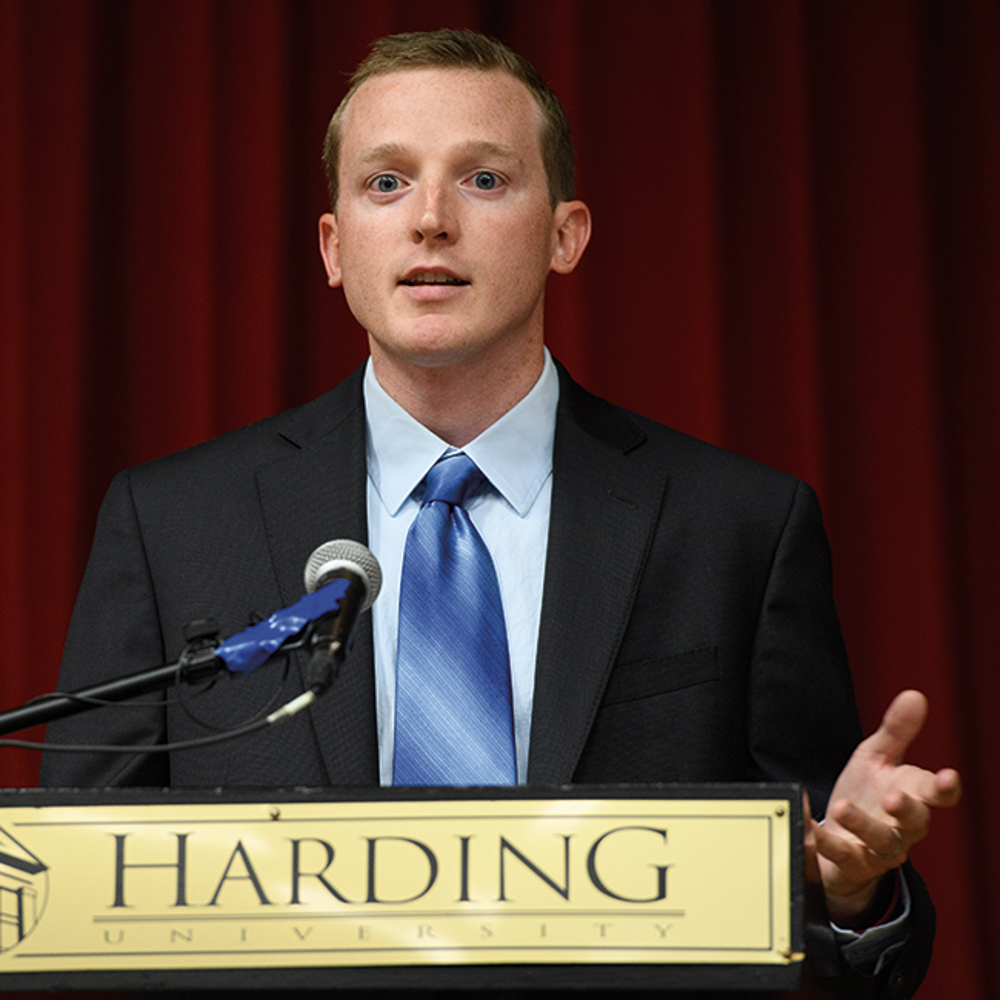By Dillon Holsonback

Dr. Steve Sparks (’13) has experienced a significant amount of transition in his four years as a pharmacist. After graduating from the College of Pharmacy, Sparks began his career as a staff pharmacist at Walmart’s Fayetteville store, which quickly became one of several stepping stones to his new position today as Walmart’s corporate director of ethics and compliance for health and wellness. This role entails making sure the retail giant’s pharmacies are compliant regarding the ever-changing pharmacy laws and regulations.
“I work with state boards of pharmacy, the Department of Health, FDA, DEA, state inspectors and our field leadership to keep our pharmacies compliant,” Sparks said. “My position is the go-to for all compliance questions from
the field.”
Sparks is currently responsible for 17 states and Puerto Rico, which amounts to 2,300 Walmart and Sam’s Club pharmacies. As the profession has grown, so has the need for regulations and new laws.
“The opioid abuse epidemic has hit the nation extremely hard, and we are on the forefront of that initiative as well as laws that are ever changing whether they are proactive or reactive,” he said. “I am there to support our associates and stores.”
Sparks grew up in a small Arkansas town called Turkey Scratch. After graduating from high school, he attended University of Arkansas in Fayetteville where he received a Bachelor of Science degree in biology. He then began searching for colleges of pharmacy to attend, and he found Harding, which was entering its second class of pharmacists at the time.
“The professors here at Harding instilled in us a sense to put the patient first and do what is best for our patients,” Sparks said. “They also taught the impact we could make, even if it is one immunization to prevent an illness or one project to affect millions of people. Each person, each patient, everything mattered.”
Sparks previously held the position of senior manager of controlled substances practice compliance health and wellness where he played a crucial role in implementing Walmart’s immunization program. The program was built on the needs of patients and their health. He felt inspired to create an immunization program because he said a pharmacist’s goal is to do the right thing for the patient.
“You will hear it time and time again: Pharmacists are one of the most accessible and most trusted health care professionals,” he said. “The profession is on the front lines of change. We needed to change with it. The program met the needs of patients already in our stores and gave them another factor of trust knowing that their local pharmacist could meet more of the patient’s health care needs.”
Sparks noted that projects like this seldom earn awards or other recognitions. Instead he finds that the team celebrates the success only to move on to another project.
“We can’t hang our hat on one project or initiative. We celebrate the win then move on and win again,” Sparks said. “Now all pharmacists who work for Walmart immunize. We also provide immunizations in all states.”
Sparks shared that there was not one piece that made the process most significant. Working together with multiple teams to achieve a common goal was a powerful way to make a difference.
“Standing back looking at it, I got the pleasure to work for the No. 1 company in the world, with the top talent to drive a program in which it can impact the health of millions. Not many people get to say that,” he said. “We will give more than 2 million immunizations this year,
and I can look back at this and say I had a major part in that project.”